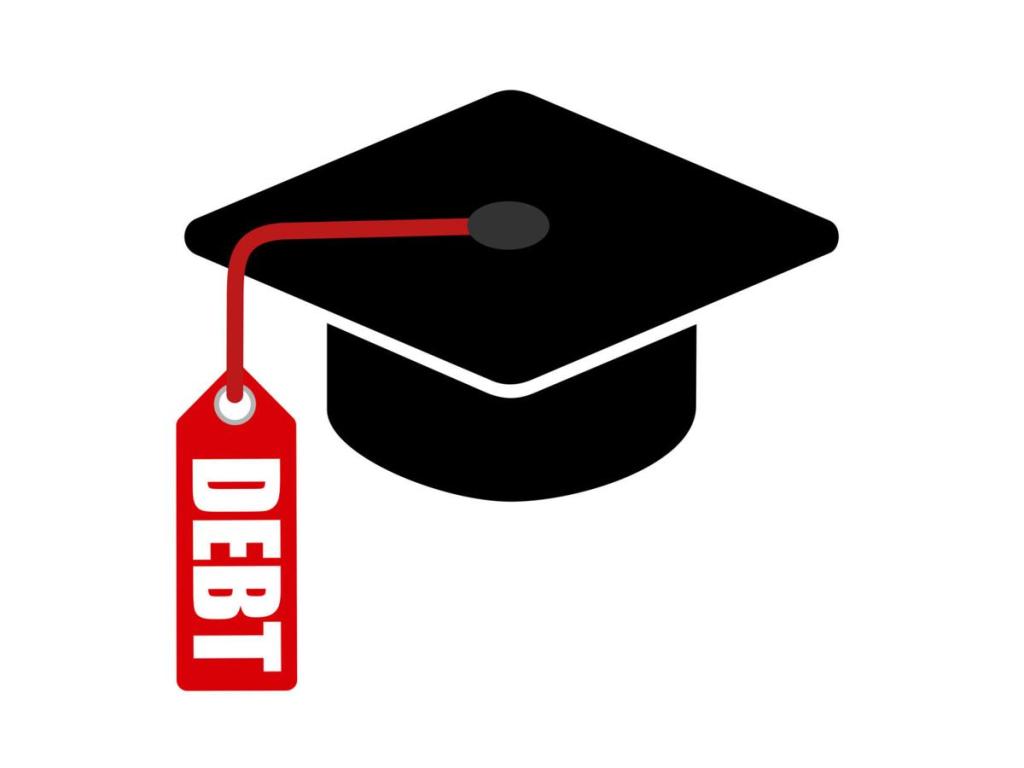Buying a Home with Student Debt.
By Rachel Puryear, Realtor with Berkshire Hathaway, (DRE 02099554), Legal Consultant, and Mortgage Loan Originator (NMLS 2019354)
If you have student loan debt, and are worried how that affects your ability to buy a home (and achieve other financial milestones), you’re certainly not alone on either of those counts. In fact, as a law school graduate, your humble host is no stranger to substantial higher education loans.
Although this country has a long way to go in its treatment of student borrowers, a few bones have been thrown our way in recent years. These come in the form of changes under the law in how mortgage lenders treat student loan debt, in evaluating a borrower’s eligibility. This might help you in buying a home. No doubt, student debt will make buying a home more challenging – but not necessarily impossible. Read on for some tips.

Figure Out Your Debt-to-Income Ratio, and Look at Options to Lower it:
In buying a home, lenders will calculate how much you pay per month for certain fixed monthly expenses, debts, and anticipated mortgage payment; and divide this by your gross monthly income. In order to obtain a qualified mortgage, you will need to have a ratio at 43% or lower. Ideally, you want it at 36% or lower, for better interest rates.
If your debt-to-income ratio is higher than you need it to be to qualify for a mortgage, you may be able to lower it. Note also that the debt-to-income ratio is based upon your monthly payment – not your total debt balances.
If your student loan balance is large but you also owe smaller debts like credit cards, consider paying off the smaller debts. This can lower your total monthly debt payments, and improve your debt-to-income ratio.
If you think you might be a good candidate for student loan refinancing, doing so might lower your monthly payment. This could also improve your debt-to-income ratio. Interest rates are at historic lows, and refinancing could take advantage of that – if refinancing is a good move for you anyway.
You might not a good candidate for refinancing your student loan – for example, if you are pursuing public service loan forgiveness, or rely on income-based repayment programs. If this is the case, there are other strategies. If you are not taking advantage of an income-based repayment program and choose to enroll in one, this could lower your monthly student loan payment and improve your debt-to-income ratio.
Recent Changes to Fannie Mae Guidelines Might Help You Qualify for a Mortgage:
Currently, lenders can look at student loans based on the actual monthly payment (as opposed to before 2017, when lenders were required to use 1% of a student borrower’s loan balance to determine their monthly payment for the purposes of calculating their debt-to-income ratio).
So, for instance: A borrower with a $100K balance would have been viewed before 2017 as having a $1,000 per month payment. But if that borrower has a $600 a month payment thanks to an income-based repayment program, the lender can determine their monthly payment to be $600 instead of $1,000. This lowers the borrower’s debt-to-income ratio from what it would have been before the 2017 changes.
In addition, where a borrower’s payments are being made by a third party (like parents, or an employer), those payments are now excluded from the debt-to-income ratio. Of course, verification of such is required.
Some Home Loans Allow Down Payments as Low as 3%:
Here’s a list of programs which could help you get a home loan and put as little as 3% down. Of course, each program has its own qualifications.
Consider what you Want Versus what you Need in a Home:
If you cannot qualify for a large enough loan to buy your dream home, make a list of what you want in a home, versus what you need. Can you compromise on location, neighborhood, amenities, size, style, or condition? You might have to settle for a less expensive starter home than you had hoped for initially. However, if you can pay down some of your debt over time and also build equity in your new home, then you could upgrade to a nicer and more ideal home later on.
As Always – Beware of Student Loan Scams:
Student loan scams abound. Be careful out there. One common scam is where borrowers are charged large sums of money (sometimes thousands) to consolidate their loans, or to apply for income-based repayment programs. These tasks are not difficult to do on one’s own, and are free to do for yourself. Anyone asking you for money up front to help you with these tasks, is probably a scammer. See the FTC’s website about this.
Also, special thanks to Student Loan Planner and Student Loan Hero, two of my go-to sources for information about student loans.
If you or someone you know wants to buy a home and has student loans, reach out to me for more information. Student debt does not have to stop your homeownership dreams.
Thank you, dear readers, for reading, following, and sharing!
